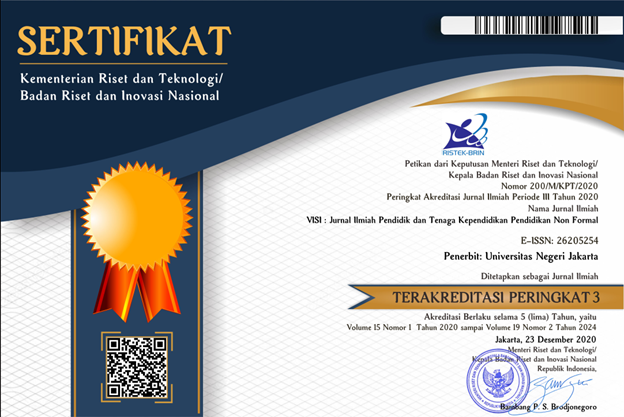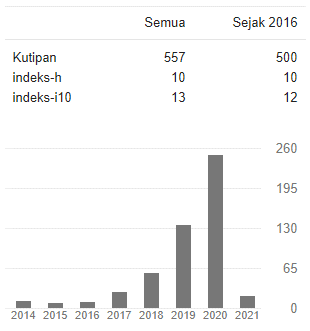UPAYA MENINGKATKAN PERKEMBANGAN MORAL ANAK USIA DINI MELALUI MENDONGENG DI TK DHARMAWANITA
DOI:
https://doi.org/10.21009/JIV.0701.3Keywords:
moral development, moral lesson, joyful fableAbstract
The moral development of children at Dharmawanita kindergarten in Padang State University is still low, it seems that there are still children with less understanding of good and bad attitude from their behaviors, like disturbing children, less emphaty feeling and unhappy to play with their friends, and also unused to say thank. One of the causes are the teacher’s effort to grow morale and incorrect method in teaching it. The purpose of this research is to fix the teacher’s ways in growing morale lesson through educated and joyful fables. This research is the classroom action research, the research which increases the learning quality. The research data done by observation and interview. The classroom action research done in two cycluses. The result of this research had shown that there is the increase of children morale development, in cyclus 1, the moral development of children was still low, after cyclus II had been done, there was increasement. Based on the classroom action research, there was an increase of children morale development, it seemed before the action in the early percentage of children ability which was very high 13,23 %, in cyclus I it got increased into 36, 76 %, meanwhile in cyclus II, it got great increased into 77.44%. it shows that there is an increasement of children morale development from the early action before cyclus till cyclus II. The conclusion is telling fable can increase the children morale development. The writer suggests to the readers that this thesis can be used as the source to explore the knowledge increasing the children morale development.
Downloads
Published
How to Cite
Issue
Section
License
Authors who publish with this Journal agree to the following terms:
- Author retain copyright and grant the journal right of first publication with the work simultaneously licensed under a creative commons attribution licensethat allow others to share the work within an acknowledgement of the work’s authorship and initial publication of this journal.
- Authors are able to enter into separate, additional contractual arrangementfor the non-exclusive distribution of the journal’s published version of the work (e.g. acknowledgement of its initial publication in this journal).
- Authors are permitted and encouraged to post their work online(e.g. in institutional repositories or on their websites) prior to and during the submission process, as it can lead to productive exchanges, as well as earlier and greater citation of published works.
- Users/public use of this website will be licensed to CC BY-NC-SA Creative Commons Attribution-NonCommercial-ShareAlike 4.0 International License









